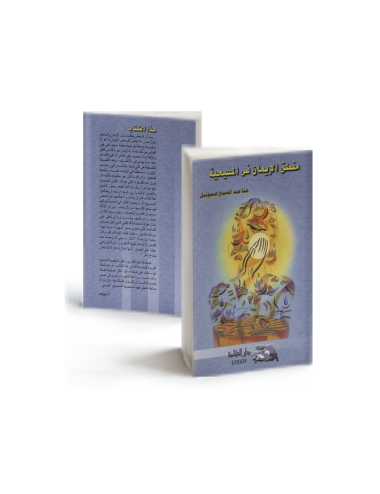The History of Christian Thought
Why would you read about the history of Christian thought? If you are Christian yourself, it helps you to understand about thinkers and the faith of the generations.
0 kg - 0.824 kg
Why would you read about the history of Christian thought? If you are Christian yourself, it helps you to understand about thinkers and the faith of the generations.
It is not a book about the religion of the churches but an effort to interpret the whole contemporary situation from the point of view of one who constantly inquires what fundamental faith is expressed in the forms which civilization takes.
Did Marcel’s philosophy of secrets achieve a push to the thought? People tend to hide secrets: his origins, his destiny, his existence, he is a collection of secrets. And above of all secrets, the secret of the existence or – according to Marcel - the ontology secret. Its different from the secrets of faith, or theology secrets.
This book is the companion piece to The Eternal Now and The New Beinشg. This is the most profound and important book of the three. Very readable (in contrast to acedemic theology) because these sermons were delivered live. Definitely Spirit-guided ministry. This work is very important in helping us to understand the difference between small spirit and large Spirit.
Since some believe that faith and logic are opposites, some consider faith to be nothing more than a naive acceptance of certain religious truths, while it is the exact opposite.
Why would you read about the history of Christian thought? If you are Christian yourself, it helps you to understand about thinkers and the faith of the generations.
This beautifully illustrated volume walks readers through every chapter of the Bible, while also explaining such things as how we got the Bible, how it was preserved over the years, how the Bible fits in with historical sources and archeological finds, and similar information.
"This book has won a firm fan. Ideal for teachers as well as students . . . In an increasingly multicultural world, this is an essential read for anyone wanting to know about religion. Loads of pictures and photos make this easily the best book of its kind." —Jon Hancock, children's book buyer for Borders UK
"This book has won a firm fan. Ideal for teachers as well as students . . . In an increasingly multicultural world, this is an essential book for anyone wanting to know about religion. Loads of pictures and photos make this easily the best book of its kind." —Jon Hancock, children's book buyer for Borders UK
WHAT IS RELIGION ? by Paul Tillich, Translated by Mejahed Abdelmeaim mejahed, combines three works originally written in German, one of which was published in 1925. The two works in the final third of the book were presented to meetings of Kant-Gesellschaft in 1919 and 1922, and may now be found mainly in Gesammelte Werke volumes I and IX...
These 16 sermons contain in concentrated form some of Tillich's most lambent themes. Although they were first published in the early 1960s, the pieces in question take up preoccupations which continue to haunt us at the beginning of the 21st century.
One of the greatest books ever written on the subject, Dynamics of Faithis a primer in the philosophy of religion. Paul Tillich, a leading theologian of the twentieth century, explores the idea of faith in all its dimensions, while defining the concept in the process.
This graceful and accessible volume contains a new introduction by Marion Pauck, Tillich's biographer.
In this clear and provocative account of the epistemology of religious experience, William P. Alston argues that the perception of God-his term for direct experiential awareness of God-makes a major contribution to the grounds of religious belief. Surveying the variety of reported direct experiences of God, Alston demonstrates that a person can be justified in holding certain beliefs about God on the basis of mystical experience.
This book presents Paul Tillich at his very best--brief, clear, stimulating, provocative. Speaking with understanding and force, he makes a basic analysis of love, power, and justice, all concepts fundamental in the mutual relations of people, of social groups, and of humankind to God.
This beautifully illustrated volume walks readers through every chapter of the Bible, while also explaining such things as how we got the Bible, how it was preserved over the years, how the Bible fits in with historical sources and archeological finds, and similar information.
Paul Tillich was a German theologian and philosopher who moved to the United States after having to flee from Nazis in the 1930s. He became a lecturer at Yale University in Connecticut
(New York Times Book Review)




















